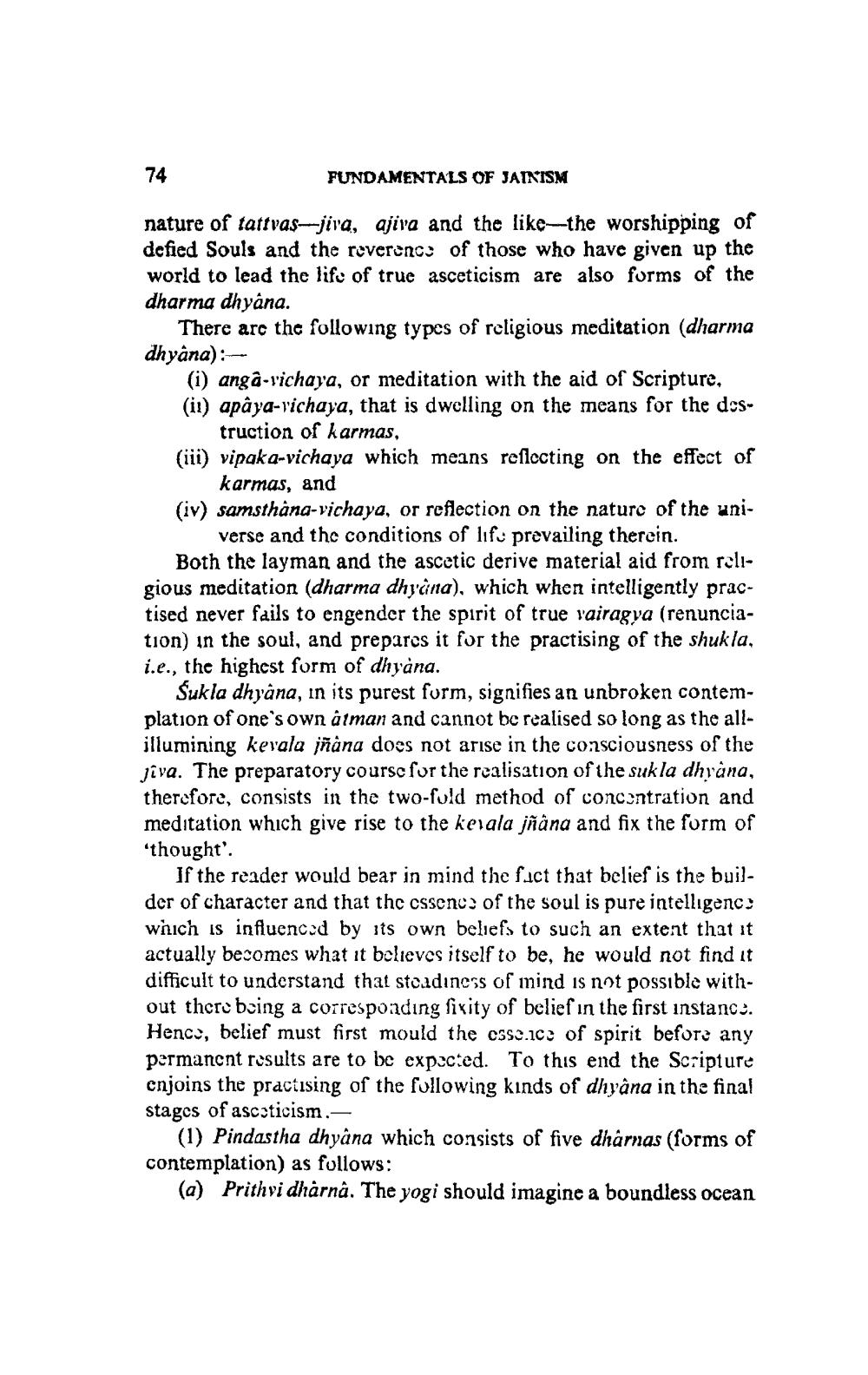________________
FUNDAMENTALS OF JAINISM
nature of tattvas-jira, ajira and the like the worshipping of defied Souls and the reverencs of those who have given up the world to lead the life of true asceticism are also forms of the dharma dhyana.
There arc the following types of religious meditation (dharma dhyana);
(i) anga-richaya, or meditation with the aid of Scripture, (11) apaya-vichaya, that is dwelling on the means for the des
truction of karmas, (iii) vipaka-vichaya which means reflecting on the effect of
karmas, and (iv) samsthana-vichaya, or reflection on the nature of the uni
verse and the conditions of life prevailing therein. Both the layman and the ascetic derive material aid from religious meditation (dharma dhyana), which when intelligently practised never fails to engender the spirit of true vairagya (renunciation) in the soul, and prepares it for the practising of the shukla, i.e., the highest form of dhyana.
Sukla dhyana, in its purest form, signifies an unbroken contemplation of one's own aiman and cannot be realised so long as the allillumining kevala jñana doss not arise in the consciousness of the jiva. The preparatory course for the realisation of the sukla dhrana therefore, consists in the two-fuld method of concentration and meditation which give rise to the keiala iñana and fix the form of 'thought'.
If the reader would bear in mind the fact that belief is the builder of character and that the cssence of the soul is pure intelligence which is influenced by its own beliefs to such an extent that it actually becomes what it believes itself to be, he would not find it difficult to understand that steadiness of mind is not possible without there being a corresponding fixity of belief in the first instance. Henco, belief must first mould the case.ics of spirit before any permanent results are to be expected. To this end the Scripture cnjoins the practising of the following kinds of dhyana in the final stages of asceticism.
(1) Pindastha dhyâna which consists of five dharnas (forms of contemplation) as follows:
(a) Prithvi dhårnâ. The yogi should imagine a boundless ocean




